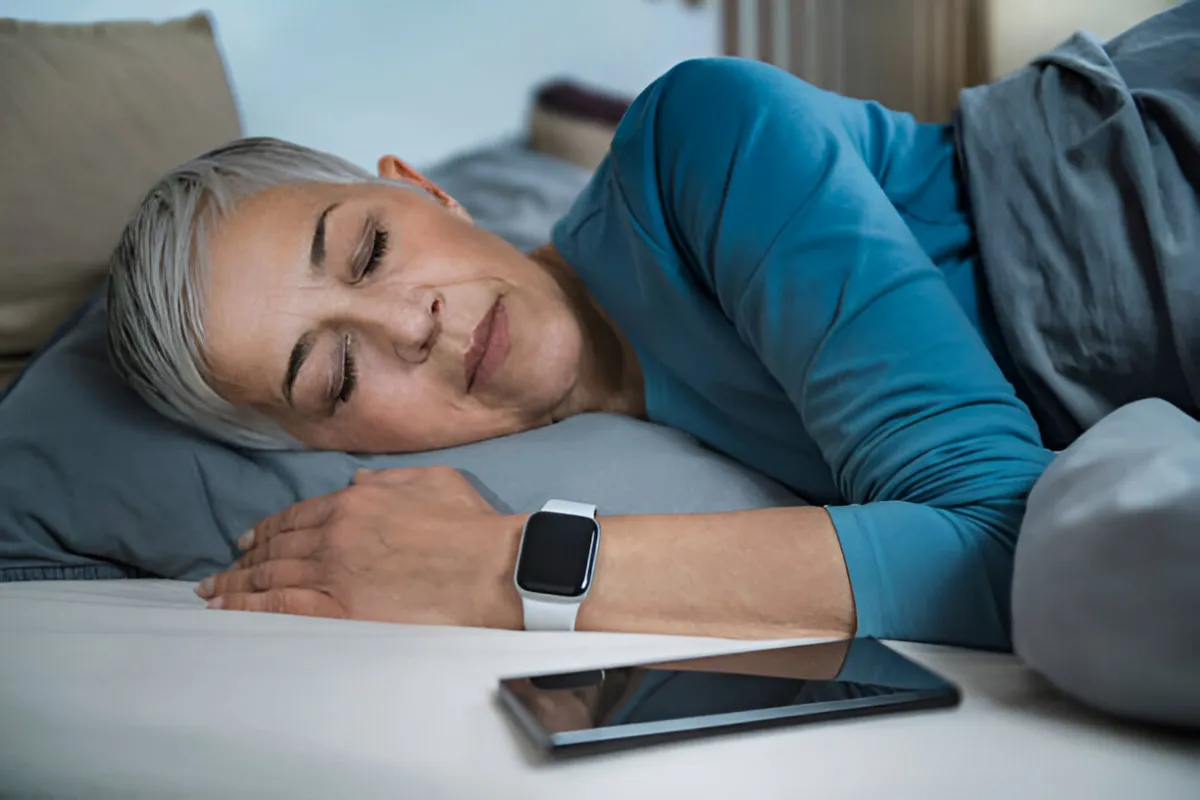
11 Tips and Solutions for Better Sleep | Cherry Hill Sleep
There’s a good chance that if it takes you a long time to fall asleep, or you find yourself waking up frequently during the night, you could use some help with your sleep hygiene. Sleep hygiene means habits that can help you get better quality sleep, like having a consistent sleep schedule or nightly routine, and good sleep hygiene is as important for your overall health and well-being as a balanced diet and regular exercise.
Sleep hygiene isn’t just a consistent bedtime routine – preparing for a good night’s sleep starts long before you turn in for the night. Making mindful decisions about your sleep during the day and making small changes to your routine can lead to much better rest and more energy throughout your day.
Below, Cherry Hill Sleep shares solutions for better sleep with 11 actionable tips to improve sleep hygiene. We'll also explore why you may be struggling with sleep, how much sleep you actually need, and signs of potential sleep disorders.
Reasons why you’re having trouble sleeping
Stress may be keeping you up at night
Stress is part of our natural biology and helps us stay alert. But persistent stress from work, family issues, or finances can keep your mind active at night, reducing the amount of restorative sleep you get.Your sleep habits may need work
Inconsistent bedtimes, screen use in bed, and daytime naps can all affect your sleep quality. Establishing healthier habits can lead to deeper, more restful sleep.Caffeine, alcohol and nicotine could be causing sleeplessness
Caffeine and nicotine are stimulants that delay sleep. Even alcohol, though initially relaxing, disrupts deep sleep later in the night. Try avoiding these substances several hours before bedtime.Schedule changes might be affecting your sleep
Changes like working night shifts or traveling across time zones can disrupt your circadian rhythm. It may take time for your body to reset and improve sleep quality.Your medication may have sleep-disrupting side effects
Some medications like antidepressants, steroids, and decongestants can impact sleep. If you suspect your medication is interfering, consult with your doctor.You could have a sleep disorder
Conditions like insomnia, sleep apnea, and restless leg syndrome interfere with sleep and may lead to serious health risks if untreated. A sleep specialist can help with diagnosis and treatment.Health conditions could be causing your lack of sleep
Chronic illnesses such as diabetes, heart disease, or asthma can negatively impact sleep. Consult your healthcare provider to explore potential connections.
How much sleep do you need?
Adults typically need between seven and nine hours of sleep each night. Individual needs vary, but if you're waking up feeling refreshed, you're likely getting enough rest. Persistent fatigue despite adequate sleep duration may indicate an underlying issue.
How to get better sleep
Here are 11 practical tips from Cherry Hill Sleep—your trusted partner in solutions for better sleep:
1. Stick to a morning routine
Consistency is key. Wake up at the same time daily, including weekends. Make your bed and eat a healthy breakfast to set a positive tone for your day and prepare for restful nights.
2. Get some sunshine
Daylight regulates your internal clock. Aim for 30-45 minutes of sunlight daily to help manage melatonin production and enhance your natural sleep-wake cycle.
3. Cut back on caffeine
Caffeine can linger in your system for up to 10 hours. Limit intake to the morning and keep daily consumption under 200 mg (about two cups of coffee).
4. Get regular exercise
Exercise boosts your body temperature and alertness, helping regulate your sleep-wake cycle. Aim for 30 minutes of physical activity five days a week, but avoid intense workouts within four hours of bedtime.
5. Avoid napping during the day
Frequent or long naps can disrupt your sleep rhythm. If you must nap, keep it under 20 minutes to stay refreshed without entering deep sleep.
6. Limit your nighttime liquids
Reduce fluids at least two hours before bedtime to minimize overnight bathroom trips that interrupt sleep.
7. Eat snacks that might help you sleep
Light snacks rich in magnesium, potassium, and calcium support sleep. Try yogurt with bananas, hummus, or peanut butter with whole-grain crackers.
8. Avoid screens before bed
Blue light from screens mimics daylight and signals your brain to stay awake. Power down devices at least 90 minutes before bed.
9. Adjust the temperature before bed
A cooler room (around 68 to 72 degrees) promotes better sleep. Adjust your thermostat or use fans to create an ideal sleeping environment.
10. Go to bed at the same time every night
A regular bedtime helps your body anticipate sleep, making it easier to fall and stay asleep. This leads to more consistent energy levels during the day.
11. Create a consistent bedtime routine
A calming routine signals your body it's time to wind down. Activities like reading, meditating, or listening to calming music can ease you into restful sleep.
How to know if you have a sleep disorder
If you have sleep issues lasting more than three weeks, or you notice signs like excessive daytime sleepiness, loud snoring, gasping for air during sleep, or persistent insomnia, you may have a sleep disorder.
Common symptoms include:
Morning headaches
Mood changes
Frequent nighttime awakenings
Nightmares or night terrors
When to talk to a doctor about difficulty sleeping
If sleep issues persist, it's time to consult a professional. At Cherry Hill Sleep, we specialize in diagnosing and treating sleep disorders. Whether you need a sleep study or expert advice, our compassionate team is here to help you find solutions for better sleep.
Ready to Sleep Better?
Don't let another night of poor sleep disrupt your life. Visit Cherry Hill Sleep to book your consultation and start your journey toward deeper, more restorative rest.
FAQs
1. What is the best solution for better sleep?
The best solution combines a consistent sleep schedule, reduced screen time before bed, regular exercise, and a calming nighttime routine. Cherry Hill Sleep can help assess your specific needs.
2. Can changing my diet improve sleep quality?
Yes. Consuming sleep-promoting nutrients like magnesium and avoiding caffeine or large meals before bed can significantly improve sleep quality.
3. How long before bed should I stop using my phone?
Ideally, you should stop using screens at least 90 minutes before going to sleep to prevent blue light from disrupting melatonin production.
4. When should I seek professional help for sleep issues?
If you’ve had trouble sleeping for more than three weeks or notice signs of a sleep disorder, it’s best to consult with a sleep specialist like Cherry Hill Sleep.
5. Does exercise really help with sleep?
Absolutely. Regular physical activity helps regulate your circadian rhythm, making it easier to fall asleep and stay asleep—just avoid vigorous workouts too close to bedtime.

